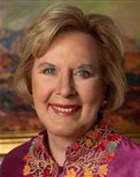
Related
Top stories






More news


Marketing & Media
Ads are coming to AI. Does that really have to be such a bad thing?













A frequent corporate assumption is that the CFO is the CEO in waiting. This has often been the case in South Africa, but recent US research indicates this could be less and less likely.
The alert comes from Korn Ferry, an international authority on corporate leadership and executive talent. Its analysis of CEOs at Forbes 2000 companies shows that only 13% moved into that post from a CFO position.
The number rose to just 18% if parameters were widened to include CEOs who previously held senior financial responsibilities (as controller, chief accounting officer, treasurer, etc.).
The study advises CFOs preparing for a CEO’s job to move beyond left-brain skills and develop right-brain competencies like getting the total workforce engaged and inspired, networking and communication expertise.
US research indicates CFOs and CEOs achieve similar scores when tested for left-brain attributes (decision quality, strategic mind-set, solving complex, intractable issues and execution alignment), though CFOs outscore for financial acumen.
However, CFOs lag in right-brain areas such as the ability to influence others, build stakeholder relationships, walk the talk, exude optimism and customer focus.
When learning agility was assessed, CFOs scored better at ‘results agility’. CEOs were way ahead at ‘change agility’ and ‘people agility’. The ‘mental agility’ gap was quite narrow. Many CFOs were learning agile – indicating openness to new challenges and skills.
It’s useful to view the Korn Ferry insights in the context of feedback on the CFO’s changing role from the global Association of Chartered Certified Accountants and the Institute of Management Accountants.
These sources confirm rapid role expansion.
CFOs are no longer the head of corporate arithmetic. Non-financial KPIs have growing importance.
Post the global financial crisis, most big corporate cuts have been made. Marketplace growth is the new priority. Therefore, closer commercial alignment is expected of the CFO. Specifically, the CFO has to turn numbers into opportunities. This also results in close CFO-CIO cooperation.
Sustainable business practice is simultaneously turning the financial officer into ‘the corporate conscience’. The CFO has a key role in risk assessment and mitigation, with reputational risk absolutely critical.
This means CFOs look beyond financial results to social and brand impacts.
New responsibilities create growing reliance on specialist outsourcing and finance shared services. Meanwhile, growing complexity and regulatory rigour necessitate close CFO collaboration with legal specialists.
The CFO is becoming a team leader who delegates responsibilities to a functional management team.
As the ‘Master of Detail’, the CFO also plays a central role in investor relations and corporate communications. In addition, the Master of Detail has become the CEO’s partner in the development of strategy and the analysis of business intelligence.
This evolving partnership means CFOs can see what additional attributes they need for the leap to the top.
The proliferating roles of the ‘Super CFO’ and close familiarity with CEO challenges create a great grounding… which means the ultimate prize may still be won by CFOs looking to beat those US percentages.
